We Are Starving For Stories In Our Lives

Welcome to the weekly column from A Mug of Insights' new home! From now on, I'll dispatch these letters on Saturdays, and paid subscribers will receive their 1-2-Read letters on Mondays. If you like what you're reading, consider upgrading to the Grande tier for journal prompts and a practical exercise every week to strengthen your reading muscles! Thank you for reading, and I look forward to seeing you next week.
I went on a Facebook Marketplace rampage last week, and over eight days, I drove all around Melbourne’s suburbs, selling a bunch of old video equipment and replacing it with three used lenses. Why? Because I am tired of letting memories slip through the cracks of time.
I kept two of the large lenses at home for making videos (a 23mm f/1.4 and a 10mm wide-angle) and carried a small one with me throughout the day. At first, it felt awkward to pause for pictures throughout a workweek, but on a Saturday morning, I took a photograph that unlocked something in me.
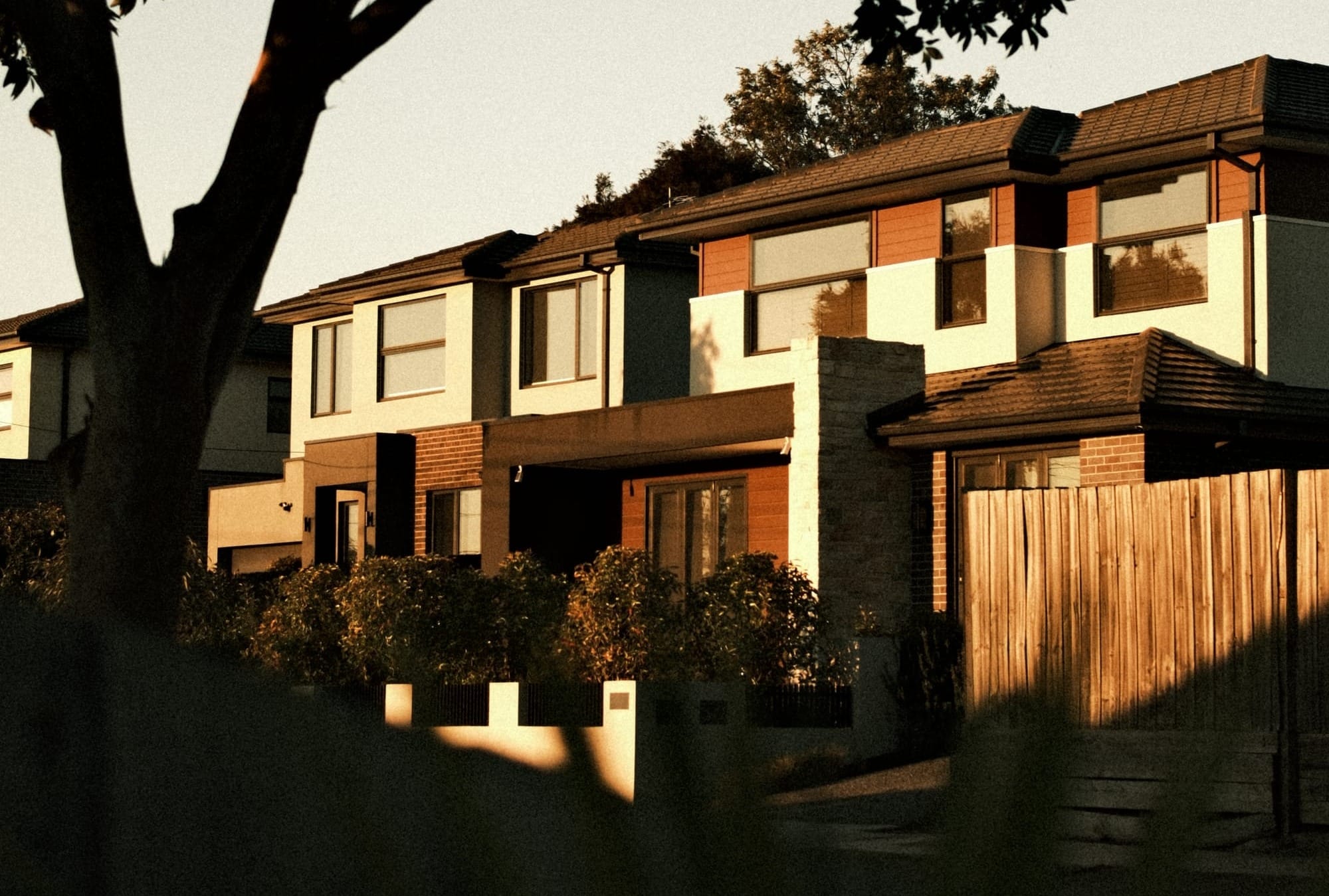
It’s nothing crazy: just a photograph of a house that I can see through my office window. But it somehow brought up the same giddy feeling of staring at a stack of Polaroid photos after a crazy party.

I took these on my 22nd birthday. I was living alone in an apartment in the CBD with a handful of friends around me. Three years later, even though I’ve lost touch with most of the people in these photos, this stack still transports me back to that time of uncertainty, excitement and early 20s buffoonery.
Then, something strange happened. From 2022 to now, my life has started to accelerate at a ridiculous speed. I graduated with honours, signed my first book deal, gave a TEDx talk at Oxford, travelled through Europe and started the newsletter that you’re reading right now. The only problem? I can’t seem to remember anything from these major moments because I stopped taking photos.
Life and work have a way of turning years into months, months into weeks, and weeks into days. This reminds me of what James Wood wrote in How Fiction Works:
“Life… strikes us as essentially formless… It’s protean. It’s about the process of endlessly becoming, proud of its built-in obsolescence.”
In other words, if we spend too much time living without remembering, then events like boarding the plane to Paris, a first kiss on a first date, throwing a graduation hat in the air, and a quiet morning writing at a café will all blend into mere happenings with no narrative. We’re always after the next chapter, the next trip and the next big purchase that we forget to stop, notice and recount what had happened two weeks ago.
It's important to stress that recounting is very different from capturing. I still have hundreds of photos in my iPhone gallery from the past three years, but these photos are flat and refuse to tell me a story about what happened. They are fragments, not narratives, and sometimes they take me away from the moments I tried to capture instead of moving me deeper into them.
The same can be said about how we take in information. Most of what we read on the internet and in news outlets is broken moments with no story. They fail to link the past with the present, and the present with a possible future. This is why even after hours of scrolling on our feeds, we still can’t scratch that itch. That itch, as I see it, is a lust for stories, and we’re all desperate for it.
A story, unlike fragmented information, comes at a price of resistance. It takes longer, and it’s a pain in the ass to get started. It looks like pacing around the desk for hours before finally settling down to journal. It feels like that lump in your throat whenever you’re scared to stop in the streets to take a photo. And it takes hours to string all these stories into a narrative of our lives. But the results… Man, the results.
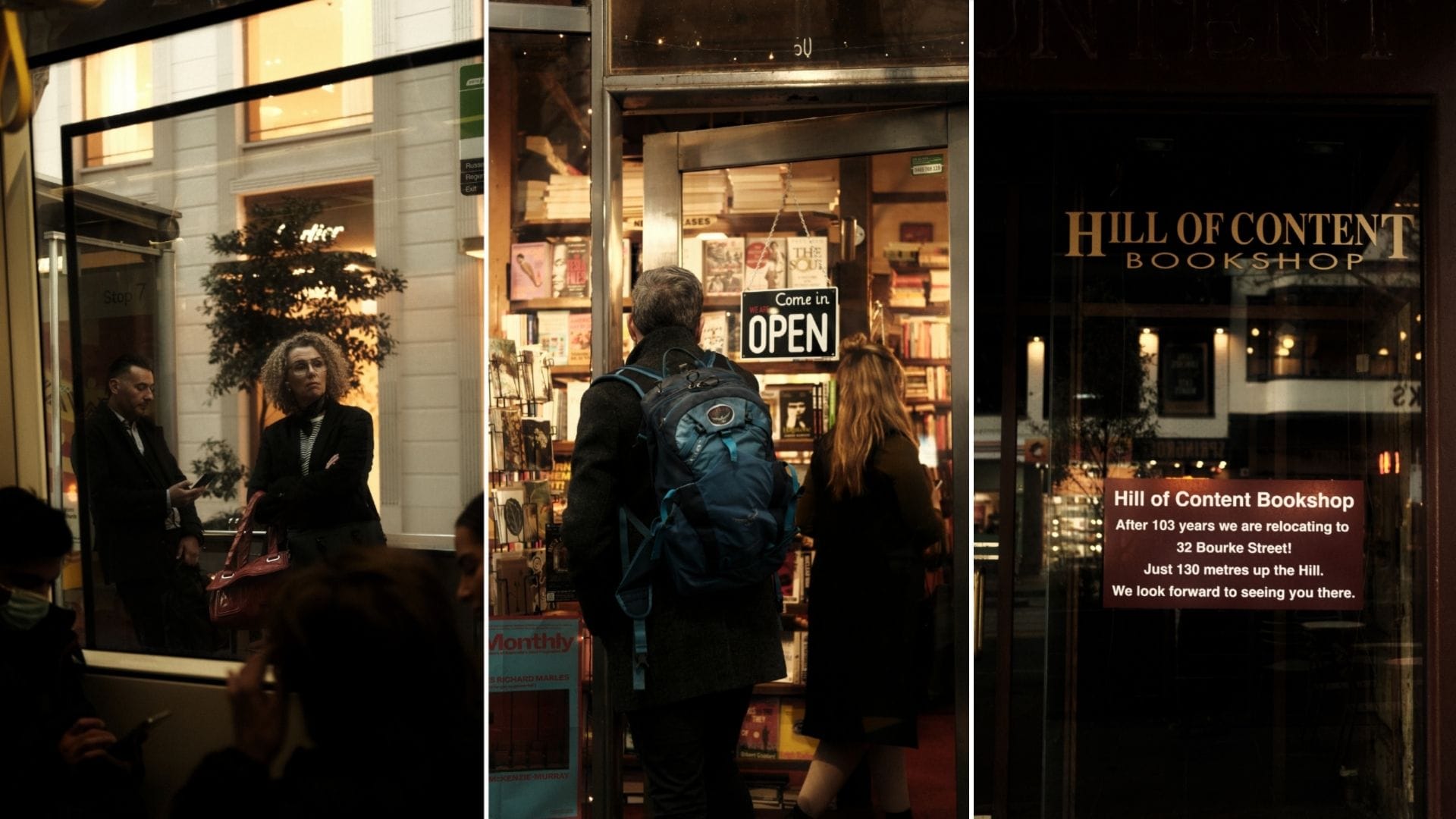
Ordinary moments begin to speak volumes, and we start to pay attention to the distracted rush hour crowd, the patrons of a run-down bookshop and a historical relocation that took 103 years. These are the stories that escape us every day, but they also ground us down to who we are, where we are and what we will become.
The same can be said about reading a novel. The price of enjoying a story is resistance because it takes longer to settle into it. We don’t like the fact that a novel takes a few weeks instead of a few minutes to read, and even the sight of a book that’s bigger than 300 pages makes us scream. But if we ever find a way to quiet the anxieties, carve out the time and ease into a sustained narrative, what awaits us is a brand-new world.
The voices of the characters, like a carefully written journal entry or a deliberately composed photo, will speak volumes beyond the pages. The descriptions in the book will merge with our world, colour it with new details and anchor us down to what it means to be human. Our thoughts will start to resemble prose, giving us access to insights that were completely opaque. And once we’ve had a solid run with a story, everything will slow down. Weeks will no longer slip through the cracks, and months will retain that vivid duration of a summer break because a good story sets firm starts and stops in our fast-paced world:
“It places an almost sacred border around the [narrative] and says, ‘This is not identical with the claims of the world. This is a space that demands a certain degree of strangeness, apartness, submission, significance.’”
-James Wood
So next time when you’re feeling listless, remember to slow down, observe and tell a story, even if it feels a little strange in the moment.
Until next week
Robin
Subscribe to my newsletter to get the latest updates and news

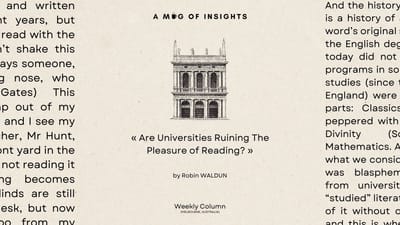
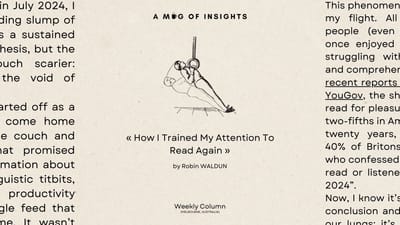
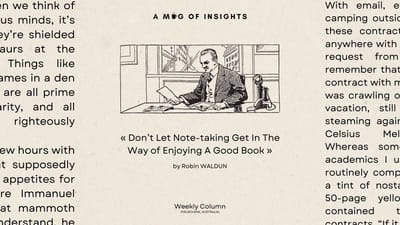
Member discussion